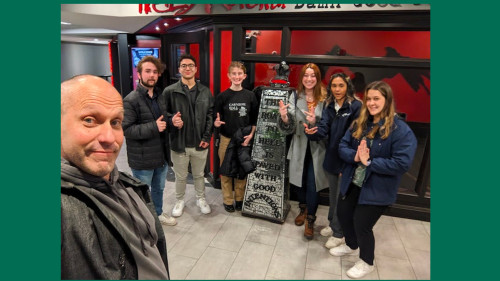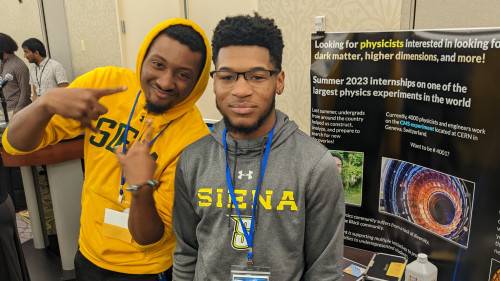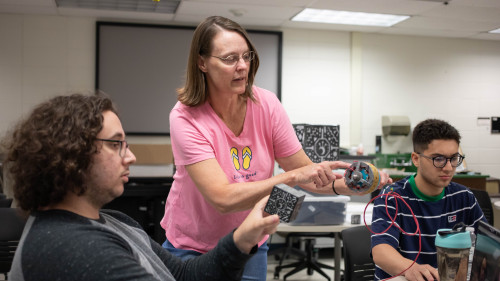
Just because campus labs are closed, that doesn't mean hands-on examination into the natural laws of the universe must stop.
The default approach to teaching general physics from a distance involved videos of faculty performing traditional experiments. Those videos, and the matching data, would be made available for the students to watch and analyze. The lesson is identical to the in-class instruction, but students lose the hands-on experience. Matt Bellis, Ph.D., associate professor of physics, figured the only solution would be to transport the physics lab into students' homes. So that's exactly what he did.
For the dozen students who opted in, Bellis created lab kits for two experiments (he originally work shopped several experiments and ordered material that could eventually be shipped to students). The first lab featured a pendulum made from string, anchored by a weight, in this case, a nut. Bellis recorded a video of himself performing the experiment. Some students had the materials at home to perform the experiment, those who didn't received kits in the mail. The students had two weeks to perform the lab and email their results.
"A big goal of these labs is getting them to really think about how we test these laws of nature and how we think about measurement and uncertainty on these measurements, something we're seeing writ large in how society studies the spread of the coronavirus. While this is obviously measurement on a smaller scale than what we're seeing in epidemiology studies, it does show the students they can "do real science" at home!," said Bellis.
"The virtual labs have given me a fun way to learn more about the topics I've studied in physics class but from home. For the labs, we don't have accurate timing devices and other technology that you would find in a typical physics classroom, so they are much more of a challenge and push you to think like ancient physicists who did not have the technology we have today. It's a great experience and I'm looking forward to the next one," said Noah Franz '22.

